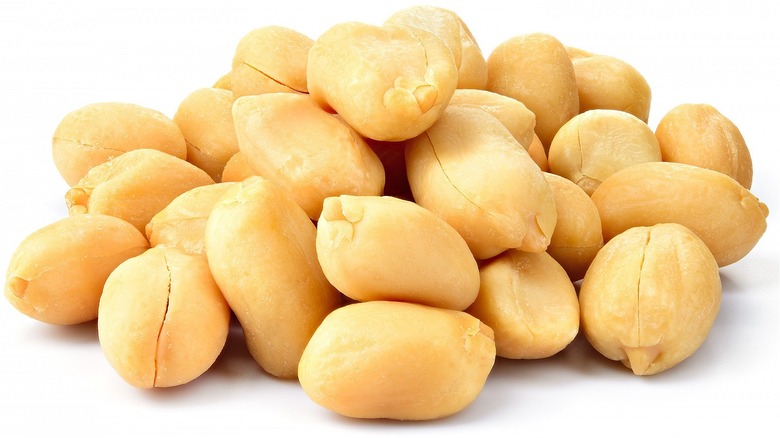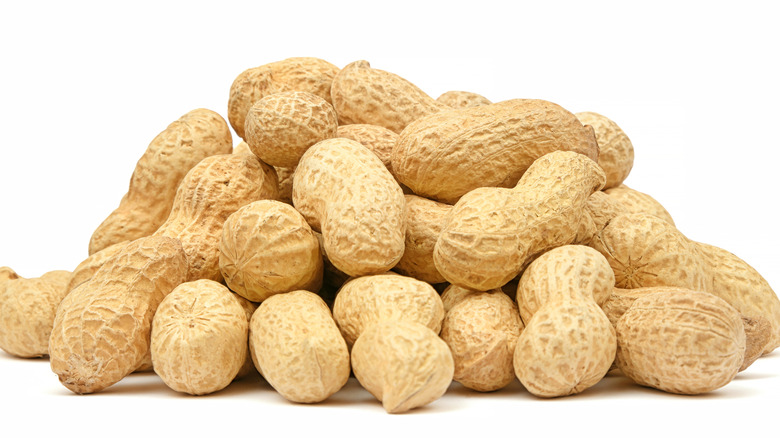The Surprising Origin Of Church Nuts
Most of us might be happy to pick up any can of fried and salted peanuts from the supermarket. But those in the know are likely to take a hard pass if North Carolina church nuts aren't on offer.
Church nuts are literally that: cooked peanuts sold by a church group to raise funds for specific charities. The fundraiser is said to have begun with the Englewood United Methodist Church in 1955, whose members would cook the peanuts at home until they established a facility they called the Peanut Shack, which allowed them to shift their operations on the church site. Making church nuts is the responsibility of the men's group, who are said to "have several cooking teams ... who rotate shifts, cooking peanuts year round."
The church group appears to have a particular way of preparing the peanuts, too. Per the New York Times, the nuts "are water-blanched, then roasted, salted, and packed into jars." The nuts are so popular, they earn tens of thousands of dollars a year that go to supporting charities including Meals on Wheels, Support Our Troops, and the Salvation Army, per Food & Wine.
There's more than one congregation making church nuts
The Englewood United Methodist Church isn't the only church nut game in town. There's the Mount Olive First Methodist Church Men's Club, which began making its version of church nuts in 1965 — a decade after the Englewood community did. And those peanuts, branded the "Mount Olive FUMC blister-fried peanuts" have a loyal following, too.
Per the church's website, the nuts are "made extra crunchy by a process called blister frying, which originated in eastern North Carolina. First, the peanuts are blanched or boiled in water. Then, when they're still wet, they're dropped in a deep fryer, causing their skin to blister, which gives them that addictive crunch..."
Food & Wine says the Mount Olive nut-cooking process isn't too different from that adopted by the Englewood UMC. So it's not surprising that the jury is out on which church group makes the best peanuts. Either way, both donate their proceeds to good causes; if you're a hardcore peanut fan, it might be worth passing on the supermarket nuts in favor of church nuts for that alone.

